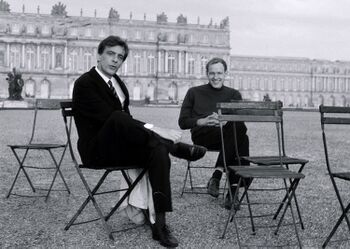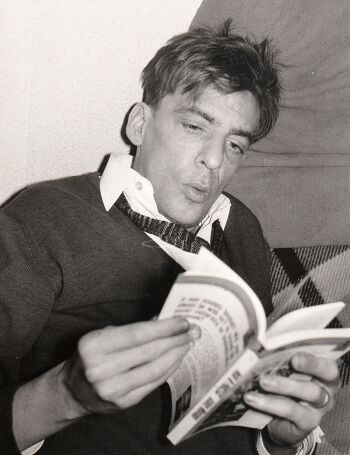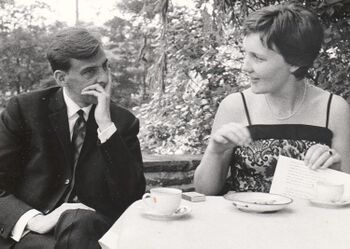Paul Lebeer

Paul Lebeer (1924, Brussels - 1994, Brussels) studied political science and journalism in Brussels. Before returning to Belgium in 1968 he had lived several years in Africa (1950s) and later in France (1960s). During his time in Leopoldville (Congo), he was involved in the fights for independence. Together with the Labrique couple, he was expelled for seditious political activities, whereupon they went to France together, where they founded a press agency dealing with African politics. He also worked as an author and editor for the French-language weekly magazine Jeune Afrique and contributed to the magazine Réalités. In Paris, he met Irmelin Hossmann, and they married in 1964. In 1966, he attended the first World Festival of Black Arts in Dakar. The following year, he obtained an interview with Michel Leiris himself, which has just been published by Éditions Sainte-Opportune (of which he was co-founder).
In the 1960s Paul Lebeer was also noted for his numerous translations, including one of Nietzsche published by Jean-Jacques Pauvert (Le Cas Wagner et Nietzsche contre Wagner). In 1968 he moved back to Brussels where he became successor to Éditions de la Connaissance (Ernst Goldschmidt) and together with his wife and brother-in-law, Herbert Hossmann, founded the publishing house Édition Lebeer Hossmann, focused on modern and contemporary art. Within that publishing activity, he had created an original collection, “Philosophiques,” which aimed to publish texts inspired by a wide variety of subjects, as long as they opened up new avenues of thought. This collection includes important texts by Fichte, Loreau, Clemens, Staiger, and Heidegger. It was in line with the latter that Paul Lebeer became, against the triumph of technical language, the defender of poetic language called upon to express reality in the broadest sense. (Source)

